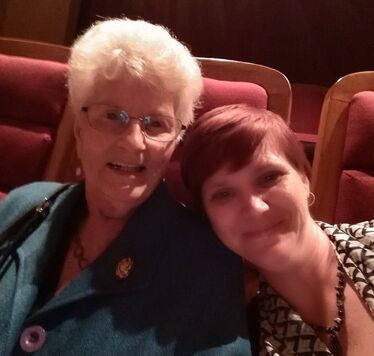|
2/20/2020 0 Comments Hospice
/
She needed a hospice space.
/
Though for much of my life she cared for me, and then my children, In the last portion of hers I was able to offer her my efforts in reciprocation. In her last few months, from when she began to be ill, she quickly required more care than I could provide for her independently.
Together my family pulled together to see her through what we initially hoped would be a recovery from her fall. We incorporated a variety of in home services with rotated assistance from the adult members of our family. Despite our best efforts she was hospitalized on March 16th of this year and we we’re then given a diagnosis of terminal on March 24th. All throughout the processes that took place during her last days, I felt she was lacking in the respect and accommodation that she received. By no means was this due to the actual individuals that held responsibility for her well-being directly, but on the ties of time and duties that they held responsibility for within their shifts. Their positions were not intended to accommodate such offerings. She needed a hospice space, where her needs and desires could and would be tended to, and she could pass with dignity, in a place of peace and respect. But Hospice was lacking the facilities to offer her one. It took a while, lasting the majority of her remaining days, but finally on April 10th she was moved to Lisaard Place, into a hospice bed. From therein, I felt I could breath again. I could relax and grieve and oversee her affairs, without being concerned for her basic comfort and care. She was well tended to. They massaged her feet. She could watch the birds and rabbits for her open door when the weather was right. She was able to acquire anything she needed without strain. The environment was familiar and comforting. It was homey. The one response she mustered when asked how she liked it there was “Awesome”, with a thumb up. It was a place she was comfortable to die in. She found peace in her pain there. Dying is a demographic none escape from. We’ll all die someday. The cost of hospice care is lesser than that of the equivalent care offered within a hospital. It can be fine-tuned to the individuals need. Yet we continue to under-fund such facilities, forcing them instead to rely on donations and volunteering to not only maintain themselves, but to increase their bed counts. I believe that effectuating an increase in the number of such facilities, with more funding being provided would decrease a portion of the cost and strain that the hospitals experience. We’re coming to a time in which the “Baby Boomers” will be aging into this type of care need. Planning ahead to ensure available space, is imperative to managing the upcoming increases in our communities need. Though this is more of a regionally or provincially regulated area of concern, I feel it’s the responsibility of our municipal representatives to speak out to the areas needs to ensure our collective voice is heard on such matters. I would suggest the integration of more hospice style medical systems, more fully funded by the government and not so reliant on donations to maintain. Because Hospice facilities are best suited as smaller units, according to some of the staff I spoke to at Lisaard, they must maintain their small style set ups to maintain their care quality. This makes sense to me. With this considered, our community could organize to create these spaces, knowing that they could later be re-purposed when end of life care needs are less. Such facilities could later be used as day care facilities or overflow sheltering or as such other need that exists at the time that hospice care spaces are lesser required. All members of our community may someday need to make use of Hospice care. In addition, an individual who is at such stage in life, yet alone, may fall through the cracks, due to unavailable beds. Together we can choose to avoid this for all, by assuring that adequate beds exist.
0 Comments
|
Categories |
Photos from John-Morgan, artwork_rebel, Capt' Gorgeous, Natalia Medd, B Rosen
